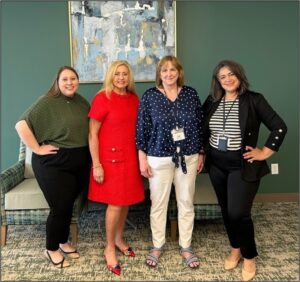
Changing Family Structures Enhance Life for Older Adults
How Multigenerational Living Impacts Caregiving
Relationships with family play an important role in the lives of older adults, particularly when it comes to their aging experience. There is no one-size-fits-all family: There are single-parent households, blended families, and, increasingly common, multi-generational households.
Multi-generational households—which often see older adults, their adult children, and their grandchildren living under one roof—can be a benefit for seniors as they age. However, these living arrangements can be complicated and, as the Future Directions for the Democracy of Aging study states, have “contributed to an increasingly complex set of family relationships later in life and implications for intergenerational support, care-giving, and new family forms.”
Many people who are serving as caregivers for an older adult may not self-identify as a caregiver—they may view it as a natural circumstance of their living arrangement. We encourage any individual who may be struggling in a caregiver capacity to reach out to local resources, like McGregor PACE, for assistance and guidance. That being said, multigenerational living does have benefits for seniors who would otherwise be living alone.
Those benefits include the following:
- Shared responsibilities and financial burden
In today’s challenging economic times, sharing the finances and responsibilities of managing a household can be a relief. Everyone can split the chores—cooking, shopping, cleaning—and pitch in for bills. - Absence of loneliness and fear
Many seniors are prone to feelings of loneliness, depression, and fear, particularly if they live alone. In a multigenerational living situation, there are usually others around and no one feels isolated. - Emergency assistance and caregiving
Because of the proximity, family members can keep a better eye on an aging loved one and step in quickly in an emergency situation. This also allows adult children to monitor their loved one for any changes in their health or physical limitations—putting them in a better position to reach out for extra support when it is needed. - Deeper relationships
Living with your family provides an unparalleled opportunity to build a close relationship with your children and your grandchildren. This keeps older adults engaged in conversations and activities, and gives them a chance to share their own perspectives and experiences which can boost their sense of purpose.
If you are currently in a multigenerational living situation but struggling to care for an older adult, we can offer support. Please reach out to our team.


